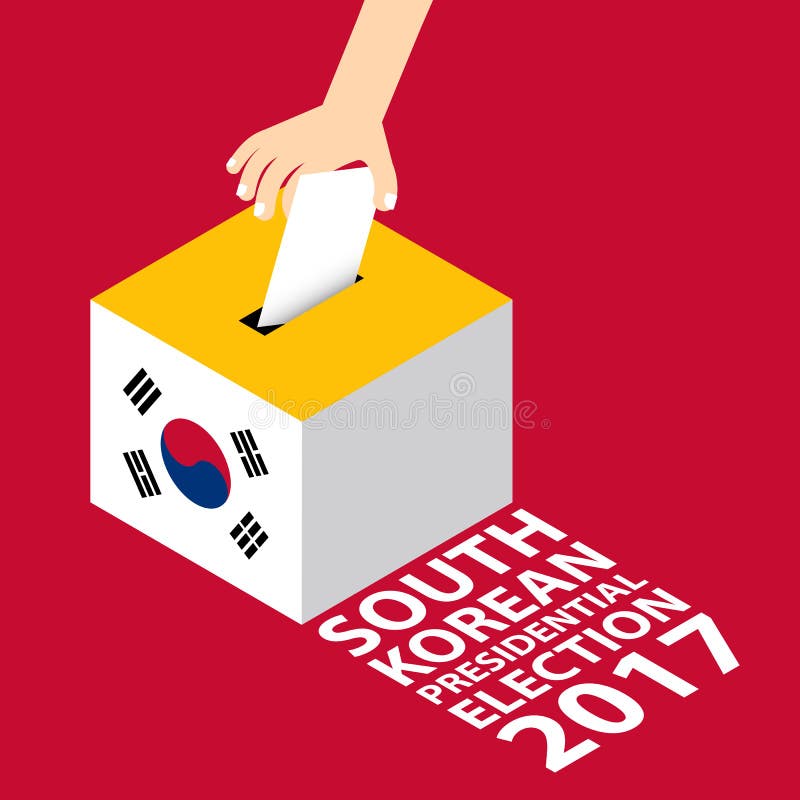Understanding The South Korean Presidential Election: Key Candidates And Their Platforms

Table of Contents
Key Candidates in the South Korean Presidential Election
The South Korean Presidential Election typically features several prominent candidates representing various political parties. While the specific candidates vary from election to election, let's illustrate with hypothetical examples to demonstrate the key aspects to consider:
-
Candidate A: (Hypothetical)
- Name and Party: Lee Min-jun, Progressive Party
- Biographical Information: Former human rights lawyer with extensive experience in civil society organizations.
- Key Strengths: Strong public speaking skills, popular among younger voters.
- Key Weaknesses: Lack of experience in national governance.
- Campaign Website: [Link to hypothetical website]
-
Candidate B: (Hypothetical)
- Name and Party: Kim Sun-hwa, Conservative Party
- Biographical Information: Experienced politician with a long history of public service, including roles in the National Assembly.
- Key Strengths: Strong policy expertise, broad base of support amongst older voters.
- Key Weaknesses: Perceived as out of touch with younger generations.
- Campaign Website: [Link to hypothetical website]
-
Candidate C: (Hypothetical)
- Name and Party: Park Ji-hoon, Centrist Party
- Biographical Information: Successful businesswoman with a background in economics.
- Key Strengths: Focus on economic growth and job creation.
- Key Weaknesses: Relatively new to politics, less name recognition.
- Campaign Website: [Link to hypothetical website]
Analyzing the Candidates' Platforms: Economic Policies
Economic policies are a central focus of any South Korean Presidential Election. Candidates typically present contrasting approaches to key issues:
- Job Creation Strategies: Candidates may propose varying strategies, including investments in infrastructure, support for small and medium-sized enterprises (SMEs), or incentives for foreign investment. Understanding their approaches to job creation is crucial for evaluating their economic platforms.
- Approaches to Income Inequality: Tackling income inequality is a significant concern. Candidates might advocate for progressive taxation, minimum wage increases, or social welfare programs to address the wealth gap.
- Plans for Economic Growth and Development: Candidates offer different visions for future economic growth. Some might focus on technological innovation, while others prioritize traditional industries.
- Stances on Taxation and Fiscal Policy: Tax policies are a major point of contention. Candidates may differ on corporate tax rates, individual income tax brackets, and government spending priorities.
- Views on Regulation and Deregulation: The level of government regulation in the economy is another key area of debate. Candidates may advocate for deregulation to stimulate growth or increased regulation to protect consumers and workers.
Candidates' Stances on Social Issues in South Korea
Social issues play a vital role in the South Korean Presidential Election. Understanding the candidates' positions on these matters is essential:
- Healthcare Reform Proposals: Candidates might offer different approaches to healthcare reform, focusing on affordability, accessibility, and quality of care.
- Education Policies: Education is a major priority. Candidates' stances on education funding, curriculum reform, and higher education access are crucial considerations.
- Environmental Policies: Environmental protection is increasingly important. Candidates' plans to address climate change, promote renewable energy, and protect natural resources will be closely scrutinized.
- Gender Equality Initiatives: Policies aimed at promoting gender equality in the workplace and society are frequently debated.
- Views on North Korea Relations: While often considered a foreign policy issue, North Korea relations have significant social implications for South Koreans.
Foreign Policy and National Security in the South Korean Presidential Election
Foreign policy and national security are critical elements of the South Korean Presidential Election. The candidates' approaches to these areas will significantly shape South Korea's role on the world stage:
- Stances on the Relationship with North Korea: This is a paramount issue. Candidates' approaches to North Korea, ranging from engagement to containment, will greatly impact the nation's future.
- Views on Alliances with the US and Other Nations: Maintaining strong alliances is vital for South Korea's security. Candidates' views on alliances with the US, Japan, and other countries will be closely examined.
- National Security Strategies: Candidates' plans to protect South Korea from external threats, including cyber warfare and terrorism, are key considerations.
- Approaches to Regional Conflicts and International Cooperation: South Korea's role in regional conflicts and international cooperation is another vital aspect of foreign policy.
The Impact of the Election on South Korea's Relations with the US and China
The outcome of the South Korean Presidential Election will have significant consequences for South Korea's relationships with both the US and China. Each candidate's approach to these crucial bilateral relationships will influence trade, security cooperation, and overall diplomatic ties.
The Role of Social Media in the South Korean Presidential Election
Social media plays a powerful role in shaping public opinion and influencing voter choices in the South Korean Presidential Election. Candidates utilize social media platforms for campaigning, while voters engage in online discussions and share information. Understanding the impact of social media is critical to understanding the election dynamics.
Conclusion
The South Korean Presidential Election presents a complex landscape of candidates with varying platforms and approaches to critical issues. Understanding these differences is crucial for voters to make informed choices. This overview has highlighted the key candidates, their economic, social, and foreign policy stances, and the potential impact of the election on South Korea's future. Stay informed about the South Korean Presidential Election. Research the candidates further, and engage in the democratic process to ensure your voice is heard in this pivotal election. Learn more about the [link to a reliable news source] and make your vote count in this important South Korean Presidential Election.

Featured Posts
-
 Fenerbahce Nin Cristiano Ronaldo Teklifi Sok Etki Ve Olasi Sonuclar
May 28, 2025
Fenerbahce Nin Cristiano Ronaldo Teklifi Sok Etki Ve Olasi Sonuclar
May 28, 2025 -
 Serious Injury Blow For Ipswich Mc Kenna On Philogene Bidaces Absence
May 28, 2025
Serious Injury Blow For Ipswich Mc Kenna On Philogene Bidaces Absence
May 28, 2025 -
 Bianca Censoris Reported Struggle To Divorce Kanye West
May 28, 2025
Bianca Censoris Reported Struggle To Divorce Kanye West
May 28, 2025 -
 Dutch Conversion Of Vacant Office Buildings And Shops Into Homes Why Progress Is Stalling
May 28, 2025
Dutch Conversion Of Vacant Office Buildings And Shops Into Homes Why Progress Is Stalling
May 28, 2025 -
 Shein And The Eu A Battle Over Consumer Law Compliance
May 28, 2025
Shein And The Eu A Battle Over Consumer Law Compliance
May 28, 2025
